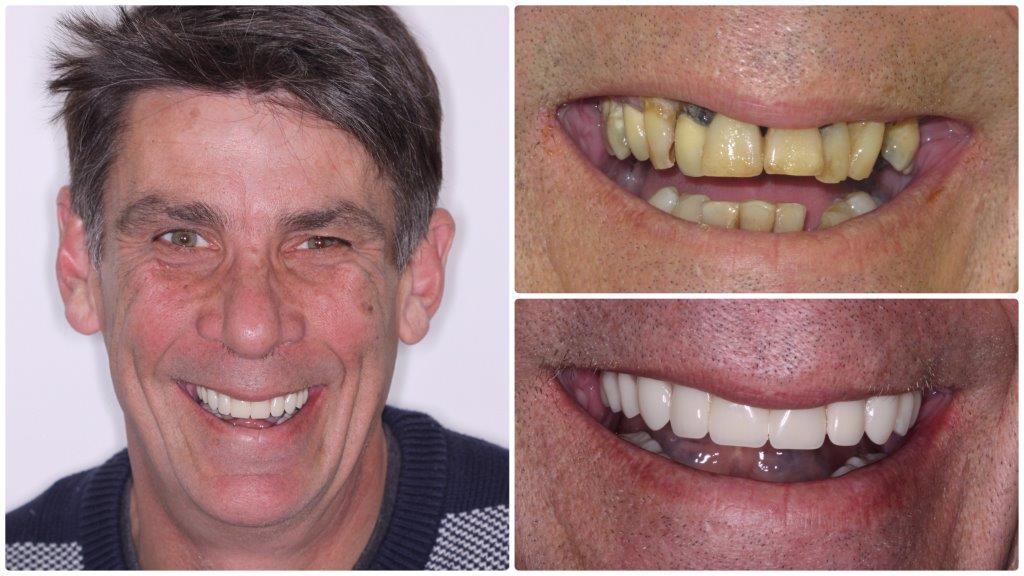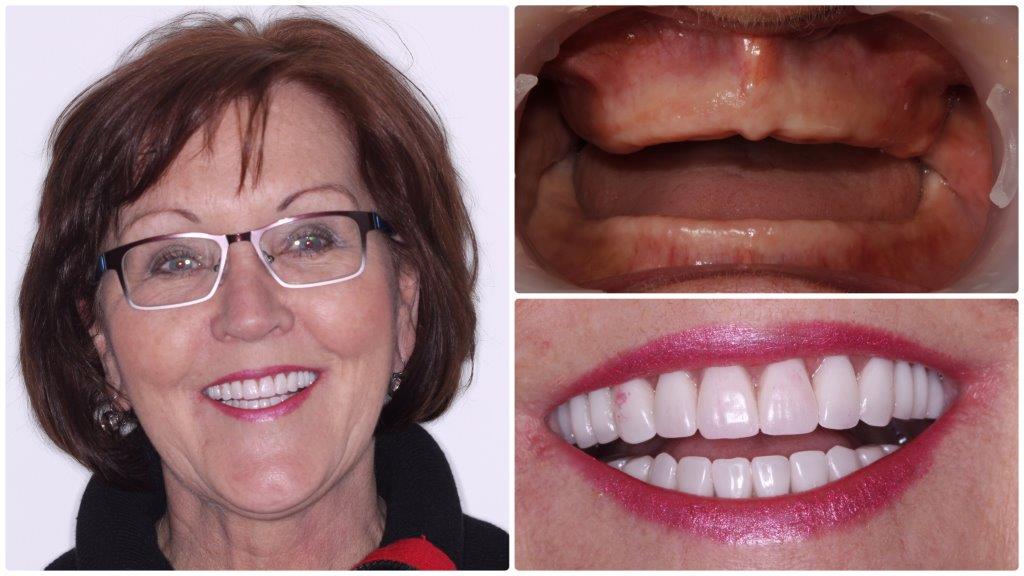Dental Implants Toronto
Book Your Virtual Consult Today
When natural teeth are missing, bone loss will cause rapid aging and change to the facial structure. The muscles that are used for chewing will shorten due to the reduced space between your nose and chin, causing further damage when left unattended. Dental implants are able to halt this process and restore facial structure.
There are many different types and functions of dental implants. In general, a dental implant is used to replace the root part of a missing, broken, or infected tooth. An implant is a small metal or ceramic post that is inserted through the gum into the bone. Once the implant fuses with your bone, it can be used to support a single replacement tooth, multiple teeth, or an entire upper and/or lower arch. The crown, or replacement tooth/teeth, are securely fitted to the implant using a small attachment. Dental implants look, feel and function like regular teeth. They allow you to eat and chew normally, and with proper care dental implants can even last a lifetime.
Dental implants are a solution for people of all ages who have lost or are about to lose a tooth, multiple teeth, or even all of their teeth due to infection, accident or injury. People who have been previously told that they are not candidates for this life-changing procedure may now be able to benefit from dental implants or Permanent Teeth-in-1-Day.


90% of patients who have been previously told that they are not candidates for dental implants are candidates for the Permanent Teeth-in-1-Day procedure. This is because the Teeth-in-1-Day procedure maximizes the dense bone in the frontal jaw – so often, bone/sinus grafting is not required. If necessary, we can use bone grafting to increase the width or height of the bone. Sinus grafting can be used to shrink sinuses when teeth are too close together, in order to add bone. After bone or sinus grafting, there is usually a waiting period of a few to several months before placing implants.
Patients generally report little pain and only moderate soreness, regardless of how many teeth are extracted. Any discomfort will usually subside within 72 hours or less. For the surgery itself, we offer sedation options including an on-site anesthesiologist who can provide conscious sedation.
All insurance companies are different and therefore offer different sorts of coverage. Most insurance companies classify dental implants as a cosmetic procedure, which may not be covered under most plans. However, some insurance companies will cover some aspect of implant procedures and therefore it is important to find out what your plan covers. Typically, insurance companies may cover extractions necessary at $300-500 per extraction. As a courtesy, we will send a claim to your insurance company with all of the required documentation. There are also some insurance companies that will even help you finance your dental implant treatment.
Book Your Virtual Consult Today
Book Now
Please, enter a valid value